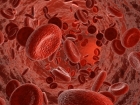Press monitoring
Nanoparticles can turn off genes in bone marrow cells
7.10.2020 | Press monitoring
Using specialized nanoparticles, MIT engineers have developed a way to turn off specific genes in cells of the bone marrow, which play an important role in producing blood cells. These particles could be tailored to help treat heart disease or to boost the yield of stem cells in patients who need stem cell transplants, the researchers say. This...
Virus turns deadly fungus from foe to friend in plants
5.10.2020 | Press monitoring
Researchers have discovered that a fungal virus (also called a mycovirus) can convert deadly fungal pathogens into beneficial fungus in rapeseed plants. Once transformed, the fungus boosts the plant's immune system, making the plant healthier and more resistant to diseases. These findings, published on September 29 in the journal Molecular...
Synthetic DNA locks up drugs in the body – and only cancer has the key
2.10.2020 | Press monitoring
Currently our best treatments for cancer are radiation and chemotherapy, but both have the unfortunate downside of not being particularly selective towards tumors. The radiation and chemicals damage and kill healthy cells throughout the body, leading to a range of unwanted health side effects like fatigue, nausea, and hair loss. In response, many...
Scientists knit new artery grafts out of collagen and synthetic fibers
30.9.2020 | Press monitoring
Heart attack patients often need replacements for damaged or blocked sections of coronary arteries, which are usually taken from their own leg veins. But in a new proof-of-concept study, scientists knitted a prototype graft out of hybrid synthetic and biological yarn, forming a scaffold for the patients own cells to grow around and repair the...
Biosynthesized silver nanoparticles are promising for pest management
28.9.2020 | Press monitoring
In recent years, a green synthesis approach involving plants has gained great attention with the aim of generating environment-friendly nanoparticles encompassing a vast range of applications. In a study published in Journal of Hazardous Materials, researchers from the Xishuangbanna Tropical Botanical Garden (XTBG) provided evidence for the novel...
Customizable synthetic antibiotic outmaneuvers resistant bacteria
25.9.2020 | Press monitoring
Antibiotic resistance is one of the world's most urgent public health threats. In the United States alone, tens of thousands of deaths result each year from drug-resistant strains of common bacteria such as Staphylococcus aureus and Enterococcus faecium, which can cause virtually untreatable hospital-acquired infections. Perilously few new...
Magnetic T-Budbots made from tea plants kill and clean biofilms
23.9.2020 | Press monitoring
Biofilms – microbial communities that form slimy layers on surfaces – are difficult to treat and remove, often because the microbes release molecules that block the entry of antibiotics and other therapies. Now, researchers reporting in ACS Applied Materials & Interfaces have made magnetically propelled microbots derived from tea buds, which they...
Tarantula venom peptide may provide relief for IBS pain
21.9.2020 | Press monitoring
Spider venom isn’t normally something you want in your body, but in some cases there might be exceptions. Australian researchers have now identified two peptides from tarantula venom that show promise in blocking organ pain, working particularly well in mouse models of irritable bowel syndrome (IBS). After screening 28 spider species, the team...
Gene-edited livestock surrogate sires successfully made fertile
18.9.2020 | Press monitoring
For the first time, scientists have created pigs, goats and cattle that can serve as viable "surrogate sires," male animals that produce sperm carrying only the genetic traits of donor animals. The advance, published in the Proceedings of the National Academy of Sciences on Sept. 14, could speed the spread of desirable characteristics in...
Gel vaccines may be more effective than currently used liquids
16.9.2020 | Press monitoring
Some vaccines aren't very effective, which is due at least partially to the amount of time that they're active within the body. A new injectable hydrogel, however, could allow them to act for a longer period of time, making them more potent. Typically, however, the body is exposed to the antigens in liquid vaccines for just one to two days. By...































